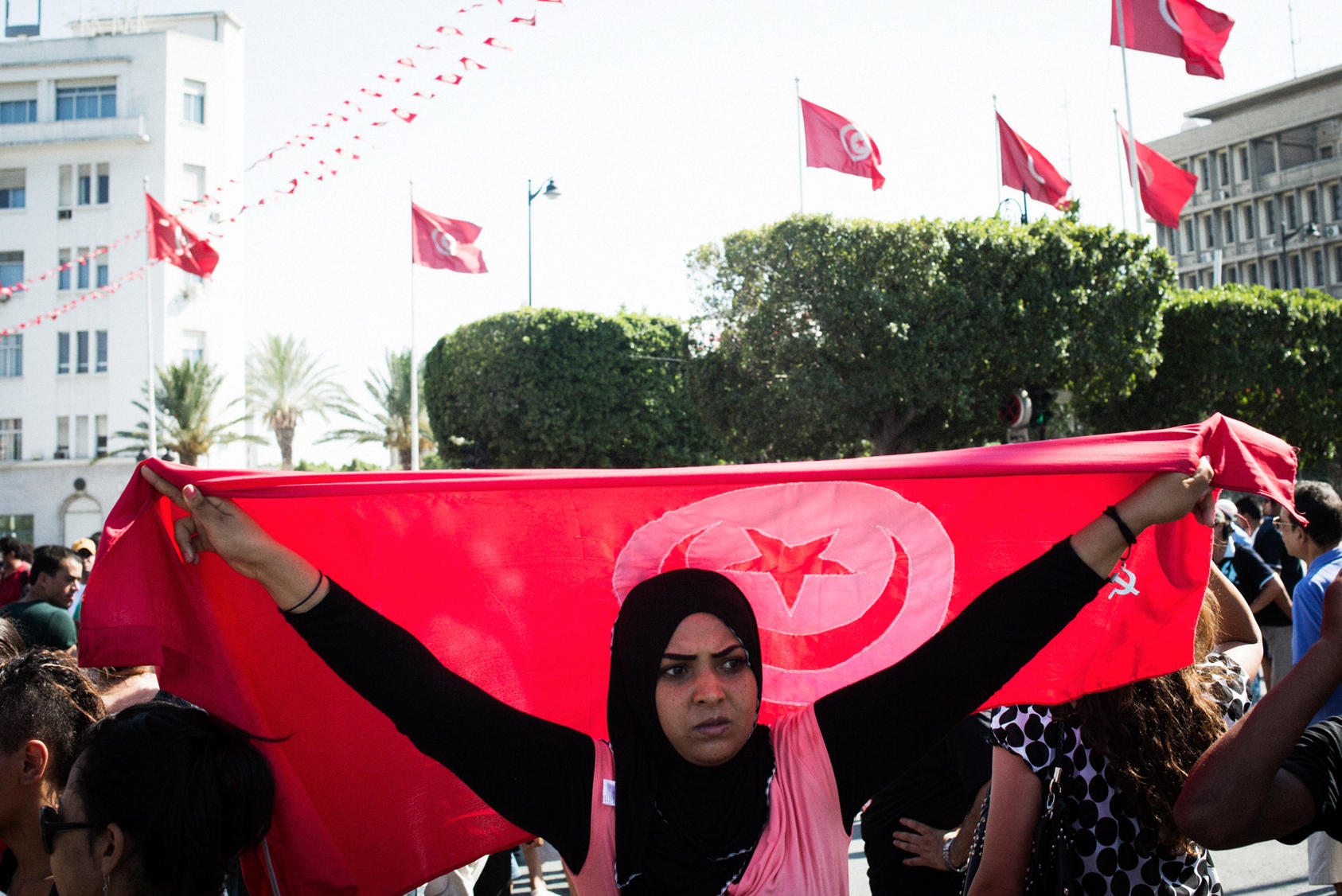Aid Remains Key to a Counter-ISIS Plan, Tunisia Says
Foreign Minister Jhinaoui Urges a Broad Strategy
As the Trump administration prepares an international conference to shape strategy against ISIS, the plan should include economic aid to undercut extremist recruitment, Tunisia’s foreign minister said March 14. Financial help is essential to help nations at risk, such as Tunisia, offer jobs and futures for unemployed, disillusioned youth, Foreign Minister Khemaies Jhinaoui told an audience at USIP.

The administration will convene the Global Coalition to Counter ISIS March 22 for its highest-level meeting in 27 months. As it does, Tunisia offers a key test for strategies to counter ISIS and similar extremist groups. It is the one nation building a more democratic political system out of the Arab Spring upheavals, yet also is a prime target of ISIS recruitment, according to its government and independent reports.
Six years after the Arab Spring revolts ignited in Tunisia’s impoverished hinterland, the country’s youth are waiting impatiently to see a dividend from the democratic changes that followed the overthrow of the authoritarian regime of President Zine El Abidine Ben Ali in 2011, Jhinaoui said. Since 2011, the government has made reforms, and has promised more, to reduce corruption, stimulate economic growth and strengthen democratic rights.
Still, Tunisia’s democratic progress remains “fragile” because of the “disillusionment and discontent of some segments of Tunisian society,” Jhinaoui said. Tunisians hold frequent public protests over high unemployment and poverty, especially in interior regions, and against a government budget and workforce being reduced as part of an International Monetary Fund aid package.
A Strategy Against Extremism
Tunisia is a major non-NATO ally that works closely with the United States in security efforts to counter ISIS. At the March 22 meeting, Jhinaoui said, his government will urge a comprehensive approach against ISIS that also supports economic growth and employment, notably for youth. U.S. economic aid is critical to Tunisia’s country’s recovery, he said, stressing his hope that it will be not be cut.
President Trump last month “praised Tunisia’s stability and security as it continues its democratic transition” in his first phone conversation in office with Tunisia’s President Beji Caid Essebsi. The Trump administration has said proposed cuts to U.S. economic assistance abroad as part of its budget plan—and Tunisia’s progress in building a more broad-based, democratic political system may make it a focus in the U.S. foreign assistance debate.
South Carolina Republican Senator Lindsey Graham, a key congressional voice on foreign policy and budget matters, urged a strong humanitarian and development aid program during USIP’s bipartisan “Passing the Baton” conference in January. A strategy to counter ISIS should include an international “Marshall Plan” of aid and private investment to “invest in the lives of the young people before they [violent extremists] can corrupt their lives,” Graham said.
Tunisian President Beiji Caid Essebsi has drawn some promises of aid and investment in recent months from European and Arab countries.
In Tunisia, USIP works with the government and civic groups to promote a more peaceful, stable society. The Institute trains and supports a network of Tunisian professionals who mediate in local conflicts—at a major university, for example—to prevent them from erupting into violence. USIP also is helping Tunisia train its police officers and has developed dialogues between police and the localities they serve, both of which Tunisia is using to improve professional, community-oriented policing.
Tunisia vs. ISIS
“A stable, secure and democratic Tunisia will be a real blow to non-democratic forces, which hate fundamental freedoms and capitalize on the disillusionment and discontent of some segments of Tunisian society,” Jhinaoui told the USIP audience.
Tunisia has made counter-terrorism a top priority, Jhinaoui said, devoting about 20 percent of its budget to security in 2017. He said Tunisia “declared war” against terrorism in 2015 after 38 people, including 30 British citizens, were killed in a beachside shooting, sending the country’s tourism industry into a tailspin. Counter-terrorism assumed even greater importance following ISIS’s attempt a year ago to seize the city of Ben Guerdane near the Libyan border, he said.
By all estimates, thousands of young Tunisians have joined ISIS to fight in Syria, Libya and Iraq. The return of even some of these militants has raised public protests over fears that violent extremism could escalate within the country.
Extremists suspected of crimes will be prosecuted under a 2015 counter-terrorism law, Jhinaoui said. “Their human rights will be respected but the country has to be protected,” he said.
Threat from Libya
Tunisia’s domestic stability is threatened by the fighting and the collapse of central authority in neighboring Libya. In January, President Essebsi, in conjunction with Algeria and Egypt, began working to facilitate talks for a political settlement among the Libyan factions. That effort serves vital regional and international interests in a more stable Libya, Jhinaoui said.
Tunisia remains fragile and vulnerable to domestic and regional security threats as well as social and economic pressures, Jhinaoui said. Still, the nation shows the world that Islam and democracy can work in concert in a country battling extremist violence. That, he said, is an asset for the United States.


